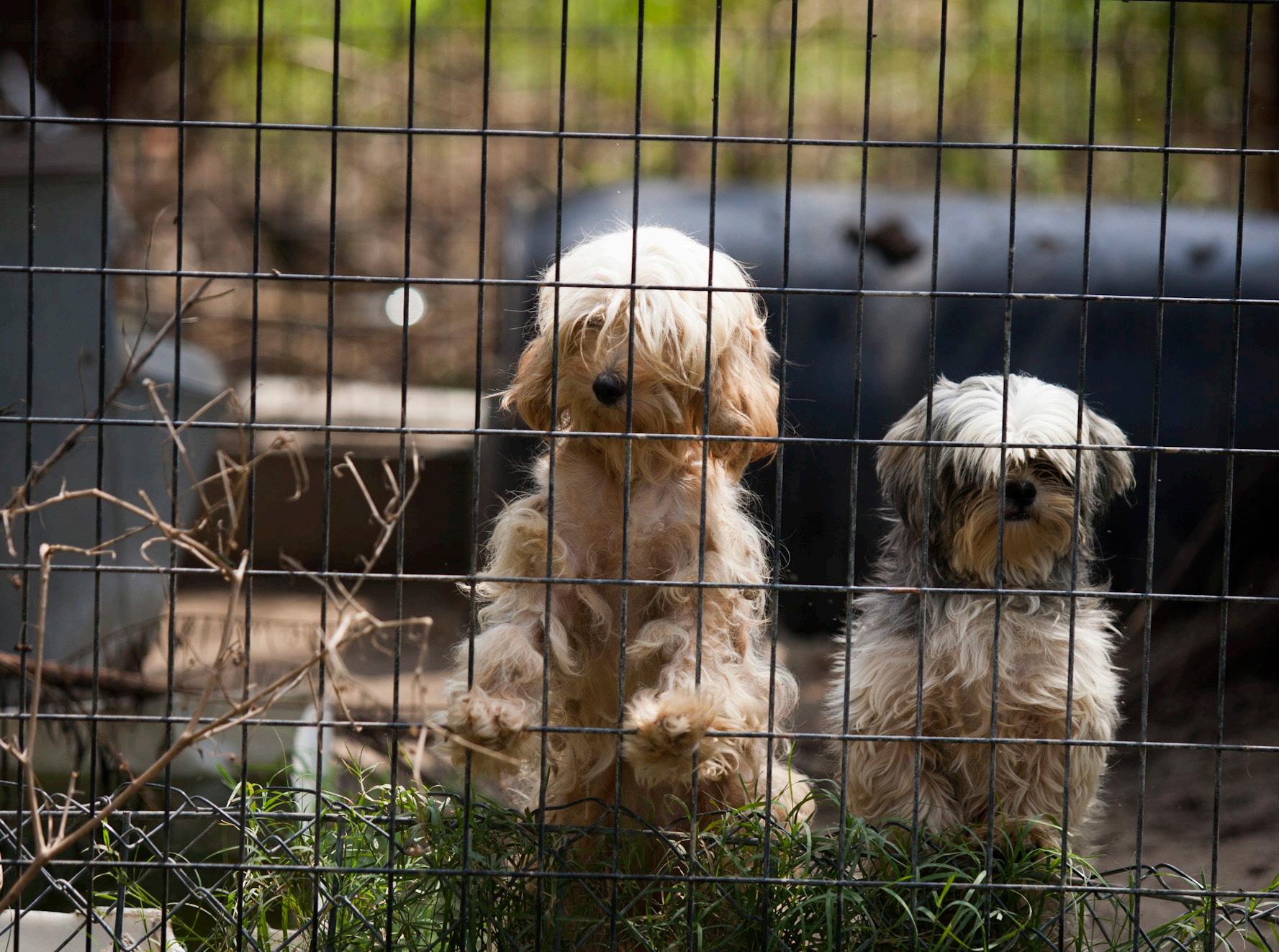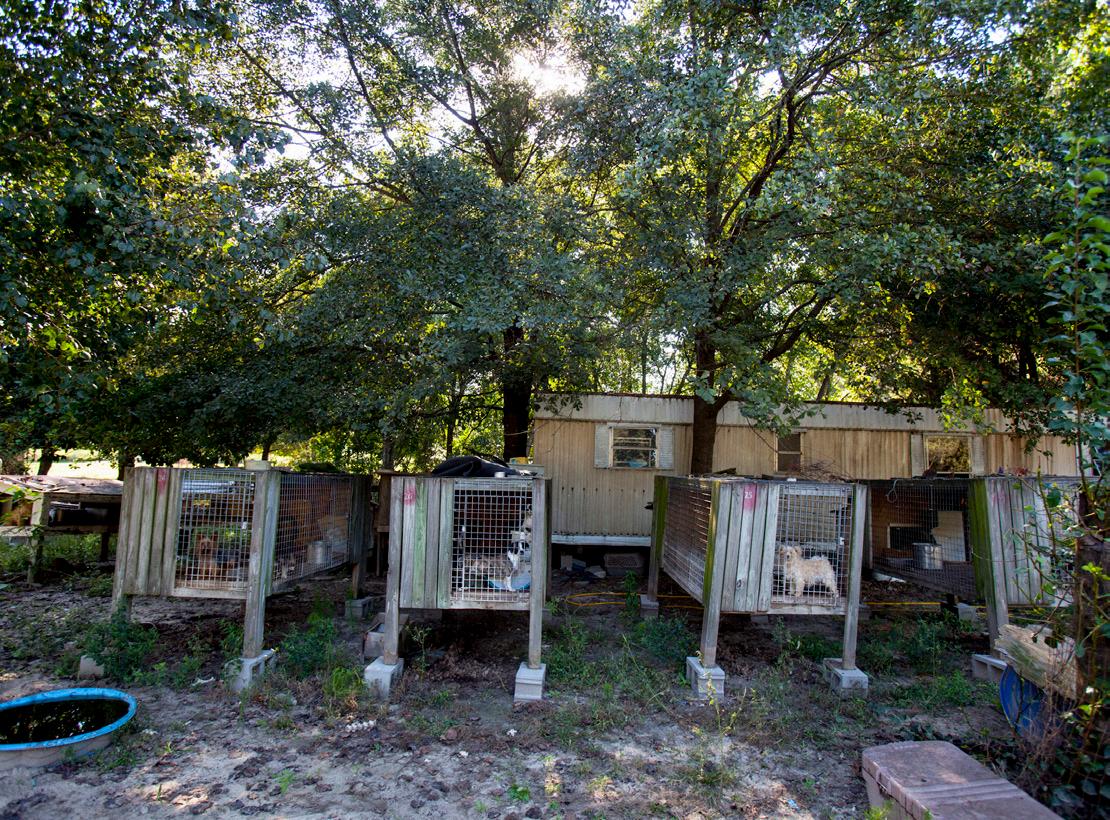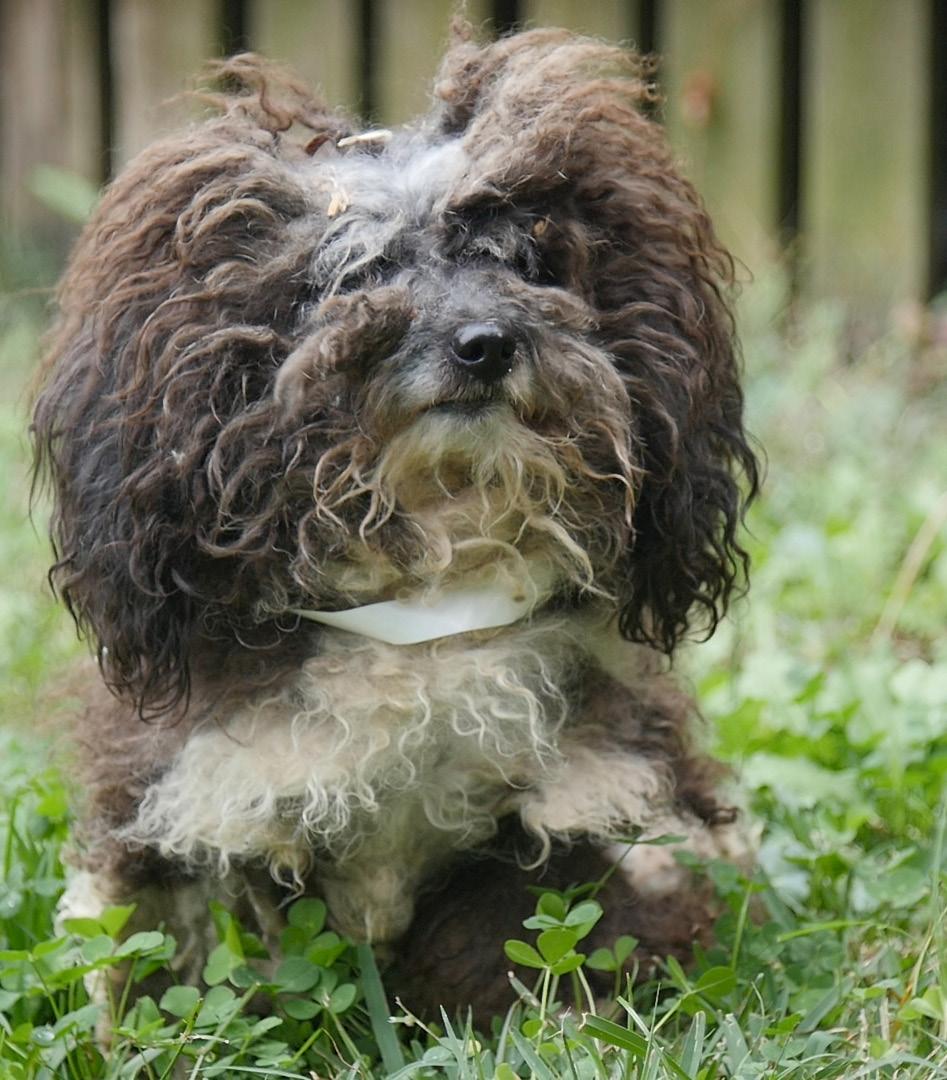
8 minute read
BREEDERS : The Good, the Bad & The Ugly
B R E E D E R S :
the good, the bad, & the ugly
Advertisement
W R I T T E N B Y : H A L I S E L E R T , STAFF WRITER
If you choose to shop for your next pet, be sure you know the types of breeders available.
Most readers of Lowcountry Dog Magazine know we fully support local shelters and rescues in their mission to end animal homelessness. These organizations work daily to place dogs and puppies of all breeds, ages and sizes into loving forever homes and here’s the shocking part—they even have PUREBREDS. Even the “best” breeders have their dogs and puppies end up in shelters and rescues. That said, we have recently felt compelled to break down the different types of breeders, in the event one of our readers chooses not to get their new friend from a shelter or rescue organization. We hope you will find this guide helpful, but still encourage everyone to check out rescues and shelters before resorting to purchasing a dog from a breeder.
TYPES OF BREEDERS—
Breeders can be broken down into four different categories, 1. Hobby Breeders, 2. Preservation, Heritage, and Show Breeders, 3. Backyard Breeders, and 4. Commercial Breeders. Anyone who has a dog that either impregnates another dog or becomes pregnant itself can call themselves a breeder and depending on the type of operation they run, they will fall into one of the four categories. In South Carolina, there are currently no laws governing the breeding of dogs, so ethical and moral values rule the day when determining whether a local breeder is up to snuff.
A Hobby Breeder is someone who occasionally breeds, but does so in a planned nature. They should be able to explain how and why they chose to breed and can provide detailed information on both parents. Often times, Hobby Breeders breed their personal dogs and the dogs live in their house with them, which means the puppies are born in a safe environment. A quality Hobby Breeder will conduct health screens on any sires and dams prior to having them mate and will not breed dogs that carry the genes that will lead to health issues. Hobby Breeders typically only breed one type of dog and are well versed in the needs of that breed. A Hobby Breeder should limit the amount of litters their female dog has and ensure she is healthy prior to, during and after the pregnancy. A quality Hobby Breeder will require any families who are interested in purchasing a puppy sign a contract, and many will include health guarantees for part of, if not all of the dog’s life. Finally, a quality Hobby Breeder will include a clause in the contract that if the family cannot keep the dog for life, it must return to the breeder to be rehomed. The purchase price of dogs from Hobby Breeders is typically in the moderate to high range and depends on breed.

Puppy Mill is Johnson, SC

Above: Animals found during a raid on a puppy mill in Johnston, SC on Tuesday, Sept. 11, 2012. HSUS workers found over 200 dogs, nine horses and 30-40 fowl. Photos by: Allen E. Sullivan/HSUS
Preservation, Heritage, and Show Breeders are similar to Hobby Breeders in the quality of care they provide for the dogs they are raising and the requirements they have for families interested in purchasing one of their dogs. Preservation, Heritage, and Show Breeders breed dogs with the goal of “preserving” the breed characteristics and producing the “best” of the breed possible. Special attention must be paid to the health of possible mates and screening is extensive. The offspring of these dogs is typically not your average family pet and many are used for show and as service dogs. The price point for dogs from Preservation, Heritage, and Show Breeders can be astronomically high and the dog will definitely come with “papers.” Backyard Breeders are often the people you see on Facebook offering their “Chocolate Lab” puppies for sale for $250. These are the type of the people that see their dog with strong physical breed characteristics as a get rich quick scheme and find likeminded individuals to pair their dog with to make some cash. Often times, the Backyard Breeders do not know much about breeding dogs and the work that is required for a successful litter. Health screens are not done and most times puppies do not come vaccinated or with any type of contract. “Papers” proving the puppy’s breed are rare from Backyard Breeders. Inbreeding is common with Backyard Breeders, which exacerbates the health problems with dogs that come from this type of environment. Just because your friend Karen from high school used to sell Lipsense and has since switched to selling puppies does not mean she knows what she is doing or that you should support her new side hustle. Commercial Breeders are large-scale breeding operations. These facilities are also known as puppy mills and are known for their cruel treatment of their dogs. Commercial Breeders are Backyard Breeders on steroids and often have numerous breeds of dogs and multiple litters whelping at once. The puppies as well as the parents, rarely receive any type of medical care and are usually riddled with disease. Commercial Breeders often have their dogs locked in cages for their entire life, only interacting with the dogs when it is time to pull the puppies from the mom to sell. Often times puppies found in pet stores such as Petland come from commercial breeding facilities (ask yourself if someone who cared about their puppies would resort to selling them to a third-party to sell them to a total stranger). In 2017, a local Commercial Breeder was busted in Florence County and 133 dogs were seized by Valiant Animal Rescue from the property of Donna Lee, with 36 being born after. The dogs seized were a myriad of breeds from Toy Poodles to Miniature Pinschers. Many local rescues participated in helping rescue and rehabilitate the dogs and some are still available for adoption. Alicia Williams, founder of Eunoia Rescue said that “many of the dogs from the Florence Puppy Mill had extensive health problems, most costing the rescue at least $1000 to rehabilitate. A vast majority of the dogs had severe dental decay and many were heartworm positive.” However, even more striking than the physical ailments that the dogs had, was the mental trauma the dogs exhibited. “Ruby is still afraid of strangers and will run and hide if someone she doesn’t know comes around. She also will roll over and lay down if you try to touch her too quickly” says Beverly Poston, who adopted a Dachshund through Eunoia Rescue following the bust.
At the end of the day, Commercial Breeders are bad news. They are not in it for the integrity of the breed or because they care about where their puppies end up. Their actions are neglectful and criminal and any commercial breeder should be shut down. Although it may be tempting to “rescue” a puppy from a Commercial Breeder by purchasing one, you are really just putting more money in that breeder’s pocket and encouraging them to keep going.
HOW TO CHOOSE A BREEDER—
When choosing a breeder to work with, there are several things to be aware of. First and foremost, do you feel comfortable with this person? Do they seem trustworthy? Would you be okay leaving your current pet in their care for an extended amount of time? If the answer to any of those questions is no, run and run fast.
Next, will the breeder allow you to come visit the parents and puppies in person? Will they let you see where they are kept and provide updates until the time comes that you can take the puppy home? Again, if the answer to any of these is no, you should probably not purchase your new pup from this person. You want a breeder who is proud of their dogs and puppies, and someone who will be transparent with you about the way they have been raised. a better socialized pup. It is important to make sure whatever breeder you work with adheres to this schedule and can provide thorough documentation for the pup’s medical history when you pick them up.
We hope this article has shed some light on the breeding industry in South Carolina and hopefully will help readers decide which path to take when choosing to add a new member to their families. Remember to check shelters and rescues for puppies of the breed you are looking for prior to turning to a breeder. If they do not currently have the breed you are looking for, ask if you can put your name on a waitlist for that type of dog. Tools such as our online database of rescues (including breed specific ones) and Petfinder.com can help narrow your search for the dog or puppy of a specific breed that you are looking for! If you suspect someone you may know is running a backyard breeding operation, or puppy mill, please contact your local Animal Control to report. ■
Additionally, it is important to consider whether this breeder is going to give you a healthy puppy. What is the point in spending so much money on an animal if it is only going to be riddled with health problems? Does your breeder do health screens with the parents before choosing to breed? When does the breeder begin de-worming and vaccinating the puppies, if at all? At what age will the puppies be allowed to leave their mom and go home with you? Does the breeder require you have your new pup spayed and/or neutered by a certain age? A puppy should begin receiving de-wormer every 2 weeks starting at 2 weeks old. They should be vaccinated at either 6 or 8 weeks with boosters every 3 weeks until they are 16 weeks old. Pups should stay with their mom and siblings until they are 8 weeks old, although mom may wean the puppies around 6 weeks. The extended time with their family leads to

ABOVE: Male poodle seized from Donna Lee’s Florence Puppy Mill by Valiant Animal Rescue in November 2017. Photo by Palmetto Coast Media

In 2017 & 2018, Valiant Animal Rescue successfully shut down and aided in criminal convictions of 4 puppy mills in South Carolina saving over 500 dogs in the process. Learn more about their cause at valiantanimalrescue.org

In January of 2020, 145 dogs like the above puppy were seized at a puppy mill in Laurens, SC. Photo by Kelsey Gilmore-Futeral, HSUS at Anderson PAWS. If you would like to join the fight to stop puppy mills, goto https://www. humanesociety.org/all-our-fights/stopping-puppy-mills








